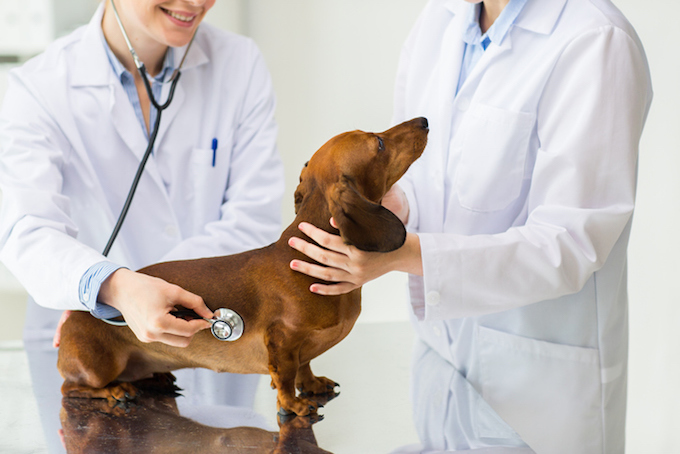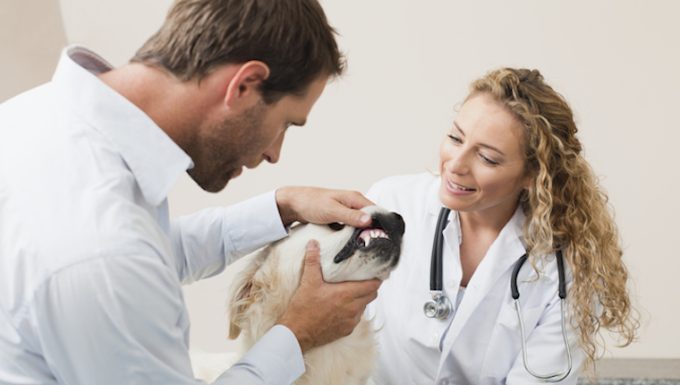Oral melanocytic tumors in dogs is a type of mouth cancer. The condition produces the most common form of oral tumors that dogs suffer from.
Technically, the condition is caused by melanin-producing cells. Specifically, these cells can be found in many places around the body. The tumors are found in the mouth.
Unfortunately, older dogs aged ten years and over are most likely to develop the condition.
If you see the signs of the condition in your dog, then get to a veterinarian for a proper diagnosis and treatment.
Here’s what you should know about the symptoms, causes, and treatments for the condition.
Symptoms of Oral Melanocytic Tumors in Dogs
The condition produces a range of symptoms. For instance, some of the most common symptoms include:
- Drooling
- Bad breath
- Avoiding eating
- Problems swallowing
- Losing weight
- Swollen lymph nodes
- Discharge from the mouth
- Loose teeth
Causes of Oral Melanocytic Tumors in Dogs

The cause of the condition is unfortunately unknown. However, older dogs seem to develop the condition more than younger dogs.
Additionally, the following breeds are most predisposed to the condition:
- Poodle
- Scottish Terrier
- Golden Retriever
- Dachshund
Treatments for Oral Melanocytic Tumors in Dogs
Firstly, your vet will ask about your dog’s symptoms. Secondly, your vet will ask about your dog’s full medical history. This will include breed-specific problems.
Thirdly, your vet will carry out a full physical examination. Your vet will pay special attention to your dog’s mouth. Additionally, deep tissue samples from the mouth can be taken and analyzed. X-rays can also be helpful.
Generally, treatment will focus on excising any tumors. This is a surgical procedure. Additionally, your vet may recommend chemotherapy.
While recovering, your vet will recommend a soft food diet for your dog. It is important to follow any diet changes precisely and stick to your vet’s advice.
Finally, your dog can also benefit from pain medication while recovering. As always, if your vet prescribes your dog any medicine, make sure to stick to the correct dose and frequency instructions. Also, complete the full course of medicine.
Have you ever cared for a dog who suffered from this condition? How did your vet help your dog recover? Let us know in the comments section below.









